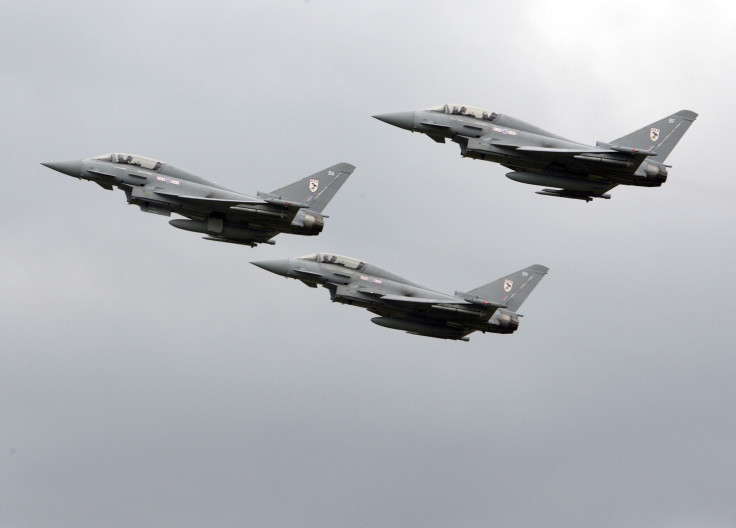UK Readies To Strike ISIS In Iraq, But What Impact Can It Really Make After Years Of Cuts?

As the British Parliament gears up for a vote Friday on whether to commence strikes against ISIS, its military has continued to endure sizable cuts, slowly shrinking to levels not seen since before World War II. The cutbacks, which have been sharp since 2011, raise questions of whether the expected intervention in northern Iraq and Syria is a just symbolic gesture to support the American ally, or whether British arms can make any meaningful impact against the Islamic State.
“The Royal Air Force could bring some significant capabilities to the operation,” said Malcolm Chalmers, research director for U.K. Defence Policy Studies at the Royal United Services Institute in London. “But clearly a central purpose of their participation is to show solidarity with the U.S.”
The British military has been progressively shrinking since its peak in 1945, largely due to technological advances that lessened the need for manpower. For example, between 2011 and 2020, the British army has sought to cut 20,000 soldiers, reducing the force by one-fifth. The air force and navy will also see 5,000 cut from each, which represents a drop of 8 percent and 9 percent respectively.
Notably, the U.K. currently is without any aircraft carriers, raising doubts about its flexibility as a global force. The U.K.'s last aircraft carrier, HMS Illustrious, was decommissioned just one month ago and the newly built replacement Queen Elizabeth will not reach operational capability until 2020 at the earliest.
Those cuts in army personnel and Royal Navy ships have led a throng of former military commanders to ask whether the U.K. would be able to defend the Falkland Islands again, for example, or operate in two theaters at the same time, as it did during the conflicts in Iraq and Afghanistan. Former army Gen. Sir Mike Jackson, speaking to the Telegraph in 2012, when the current round of cuts was just beginning, said that if Argentina were to invade the Falklands again it would be “just about impossible” to regain key strategic positions as Britain did back in 1982.
British spending on defense as a percentage of gross domestic product is likely to fall below the 2 percent level encouraged by NATO by 2015, according to a September report from RUSI. By 2020-2021, the level is expected to drop as low as 1.5 percent. Still, "the U.K. will still be NATO’s second largest spender," Chalmers said.
Prime Minister David Cameron addressed the United Nations Wednesday, making it clear that the UK was likely to begin airstrikes against ISIS as early as next week, should the vote pass. Cameron’s delay in intervening until now has not been about hesitation in striking ISIS, but more likely to do with a domestic issue based around his failure to garner support to intervene militarily in Syria in 2013 after the Bashar Assad regime used chemical weapons against its own people.
“He doesn’t want a repeat of what he did last year, which was to panic, recall Parliament and fail,” Patricia Lewis, director of research in international security for the London think tank Chatham House, told the Washington Post.
As for the actual airstrikes against ISIS, they will be carried out by either the Eurofighter Typhoon, six of which were sent to the RAF base at Akrotiri in Cyprus in 2013 to react to Assad’s use of chemical weapons, or the Tornado GR4, which is due to retire in March 2019. The Royal Air Force withdrew the Harrier jet, which was used in the strike and close air support roles and could have been employed against ISIS, in 2010.
© Copyright IBTimes 2024. All rights reserved.












